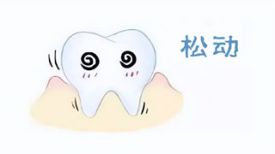As the saying goes, "folk remedies treat serious illnesses.". Some diseases are treated dialectically by renowned doctors who use all possible methods but have no effect. However, once folk remedies are used, they can be easily applied and effective. Folk remedies should not be underestimated and are worth collecting!
Li Shizhen once said, "Sweat comes from the heart, the inside is blood, and the outside is sweat.". That is to say, sweat is the fluid of the heart, and sweating is the production of heart blood. If you produce it vigorously and smoothly, it is the excretion and metabolism. If you sweat profusely, it's heartbreaking blood.
There is a retired teacher. The summer when she retired at home was very hot, and she was a very sweaty person. She worked particularly hard that summer, but as soon as it passed, she felt extremely tired, panting and sweating even more.
She also knew that she was sweating and feeling weak, but she couldn't control her sweat no matter what. At first, it was because of the heat, but later it was already autumn, and the sweat still couldn't stop. So she went to see traditional Chinese medicine, and the conclusion she got was very helpful. The doctor said that she was "sweating and exhausting her heart energy.".
The Ling Shu also states that those who take blood should not sweat, and those who take sweat should not blood. The meaning is to emphasize that people who have already bled should avoid sweating if treated, and those who sweat a lot do not need to use bloodletting therapy because both sweat and blood will take away energy from the body, leaving people in a weak state, so they cannot be repeatedly depleted.
Many people may have had the experience of sweating profusely or experiencing diarrhea to the point of dehydration, although not to the point of paralysis, they may feel powerless. The final result is both qi and yin damage, resulting in deficiency of both qi and yin.
Manifested as mental fatigue, shortness of breath, lazy speech, sweating, dry throat and mouth, restlessness and thirst for drinks, fever in the afternoon, redness in cheeks, restlessness and heat in the five hearts, short and short urination, dry stool, red tongue with little coating and dryness.
Traditional Chinese medicine believes that the heart and kidneys are interconnected, so nourishing the heart should also take into account nourishing the kidneys.
There is a prescription that can nourish the five internal organs, especially the heart and kidneys. It is very suitable for summer consumption, can nourish yin, and prevent the leakage of vitality. It is suitable for both men and women.
This recipe is called Erzi Yanshou Tea, named Erzi, which means it only has two herbs, Schisandra and Goji berries.
People who know how to maintain health know that the five colors can nourish the five internal organs, such as black entering the kidneys, and eating more black beans if the kidneys are not good; But you know what? In fact, the five flavors can also nourish the five organs. Traditional Chinese medicine says "sour, sweet, bitter, spicy, and salty", and the five flavors are respectively classified into the five organs, corresponding to the liver, spleen, heart, lungs, and kidneys. And Schisandra corresponds perfectly to these five flavors, it is simply a natural magic weapon for protecting the five organs.
Schisandra chinensis is classified as top-grade in the Shennong Materia Medica Classic.
Wu Zetian used it to nourish her body and prolong her life.
In "Baopuzi", it is mentioned that Duke Huainan envied Menzi for wearing it for sixteen years, with a jade like complexion.
The famous doctor Sun Simiao's "Shengmai San" uses Schisandra to nourish qi and protect the heart.
The Selected Medical Prescriptions of Empress Dowager Cixi and Emperor Guangxu also recorded that Cixi used it to nourish his mind and spirit.
The unique substances contained in Schisandra chinensis can protect the myocardium and improve heart function; It can also calm the mind and strengthen the brain.
Schisandra chinensis can also nourish the essence and qi in the kidneys, while also consolidating the essence and qi in the kidneys, which is more effective than simply nourishing.
Traditional Chinese medicine has had the saying of "goji berry health preservation" for a long time. It has been used in medicine since the "collection of goji berries" in the Book of Songs, and has a history of more than 3000 years. Since ancient times, goji berries have been a nourishing delicacy and are known as "Qilaozi".
Goji berries are the most affordable ingredient in the health industry, but they deserve it!
The Compendium of Materia Medica states: "Goji berries can nourish the kidneys and produce essence, nourish the liver and improve eyesight.".
The Classic of Materia Medica states: "Goji berries are moisturizing and nourishing, and can also reduce fever. They are specialized in tonifying the kidneys, moistening the lungs, generating fluids, and tonifying qi. They are essential medicines for tonifying liver and kidney true yin deficiency, fatigue, and internal heat."
According to the Compendium of Materia Medica, "Goji berries are smooth, nourishing, and sweet. They nourish the lungs and liver, nourish the kidneys and qi, supplement deficiency and fatigue, strengthen muscles and bones, remove wind and brighten the eyes, and benefit the large and small intestine."
Erzi Yanshou Tea: 6g goji berries and 6g schisandra. You can slightly mash the schisandra and brew it with hot water as a substitute for tea.
Schisandra chinensis is sour, bitter, sweet, salty, but mainly sour. If you really don't like it, you can add siraitia grosvenorii to increase its sweetness and efficacy, without sugar. For friends with high blood lipids and high blood sugar, it is more friendly.
A great prescription for tonifying deficiency and fatigue, suitable for both qi and blood deficiency, as well as spleen and stomach weakness!
A great prescription for tonifying the heart and kidneys, just soak 2 herbs in water and drink!
Release time:2024-06-02 15:38:41
Reading:174
Word Count:5943
Subscribe to email


